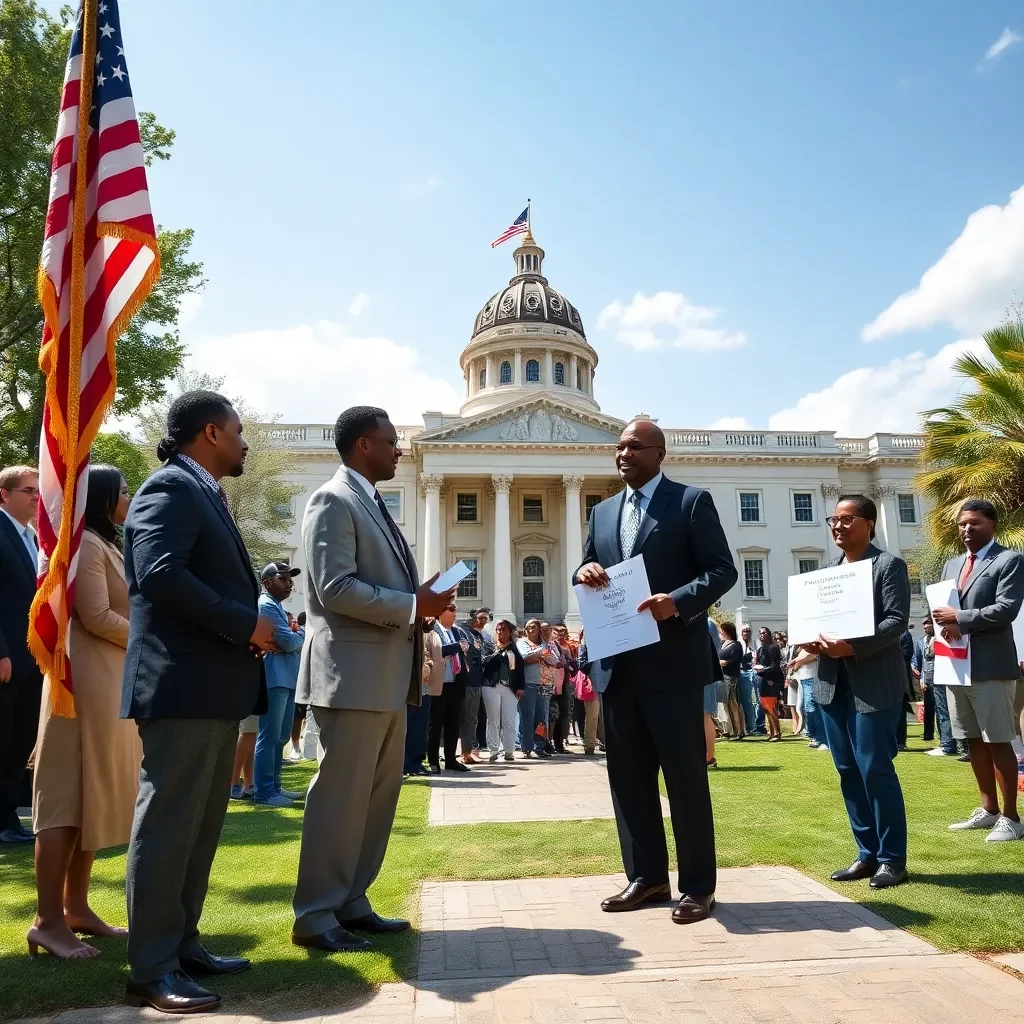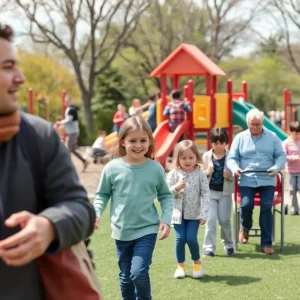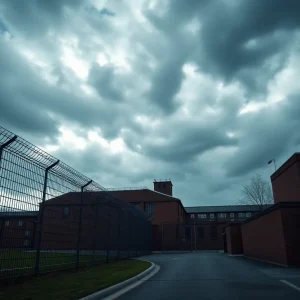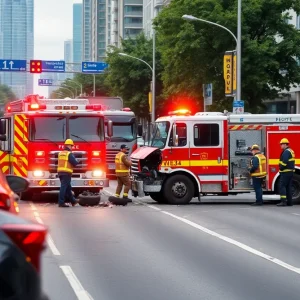Columbia Celebrates Justice 60 Years Late
Columbia, South Carolina, became the backdrop of an important moment in history last Friday as a ceremony took place to clear the records of seven men arrested during sit-in protests against segregation in 1960. This event marked a significant acknowledgment of past injustices and celebrated the courage of those who fought for equal rights.
A Step Back in Time
It all began over sixty years ago, when Simon Bouie and Talmadge Neal, two college students, walked into Eckerd’s Drug Store on Main Street in Columbia. They were hungry and hopeful for change. Little did they know, just 15 minutes later, they would find themselves facing arrest for attempting to order lunch at a whites-only counter. Bouie, a 20-year-old Black student from Allen University, was bewildered. “I wonder how many of us you’re going to arrest tomorrow?” he asked as police escorted him away.
True to the tense atmosphere, the answer was five. The next day, Charles Barr and several fellow students were apprehended for doing the same thing at Taylor Street Pharmacy. Barr recalled the anxiety that gripped him that day. “No one really realized what happened 60 years ago. How afraid I was of what was going to happen that day that we sat down,” he said during the recent ceremony.
What Were the Sit-Ins About?
The protests, marking a pivotal chapter in the Civil Rights Movement, were not isolated incidents. They stemmed from a deep-rooted desire for justice and equality, as Black Americans fought against discriminatory practices that kept them from enjoying the same privileges as their white counterparts. Bouie, Neal, and other students participated in organized sit-ins, a peaceful form of protest aimed at challenging segregated lunch counters across the nation.
These brave individuals had the backing of a talented group of lawyers, including the notable Civil Rights attorney Matthew J. Perry. Perry’s relentless advocacy led to victories in court that resonated far beyond Columbia, raising awareness and sparking additional protests throughout South Carolina.
A Historic Gathering
Fast forward to last week, the ceremonial event at the Richland County Courthouse drew in the men, now in their eighties, along with their families and supporters. The mood was one of reflection and relief. Judge Robert Hood presided over the court as he expunged the records of the seven men who had been arrested back in the turbulent days of the civil rights struggles. Bobby Donaldson, the Director of the Center for Civil Rights History and Research at the University of South Carolina, spoke about the significance of the moment.
“We gather today in this courtroom to mark not just a moment in legal history, but a profound act of justice and remembrance for our community,” Donaldson said. The ceremony was adorned with empty chairs and pale roses representing those who had passed away, including five of the original protesters.
The Community Reacts
The event was met with enthusiasm from the audience, which included descendants of those arrested. State Senator Darrell Jackson was particularly moved, indicating plans to propose a resolution commemorating the bravery of the men who challenged the status quo. “I know the young men who sat at that lunch counter could never imagine a day when a Black solicitor could expunge the sit-in arrest records,” he expressed.
Columbia’s city council also joined in commemorating the occasion, acknowledging the city’s oversight in not clearing these criminal records sooner, particularly after the Supreme Court’s ruling.
Reflections on Impact
Both Bouie and Barr acknowledged the tremendous impact their actions had on their community, even if they didn’t fully understand it at the time. They referenced other Civil Rights leaders who supported them, emphasizing the need to remember the collective effort in the fight for equality.
Donaldson poignantly noted, “This is not just a moment of nostalgia. This is a moment of deep, deep reflection.” He emphasized how these courageous men sat at a lunch counter and “marched into the pages of history.”
As Columbia continues to reflect on its Civil Rights legacy, this ceremony serves as a reminder of the sacrifices made for justice. The clearing of arrest records isn’t just a legal formality; it symbolizes a community recognizing its past and taking commendable steps toward healing and reconciliation.








